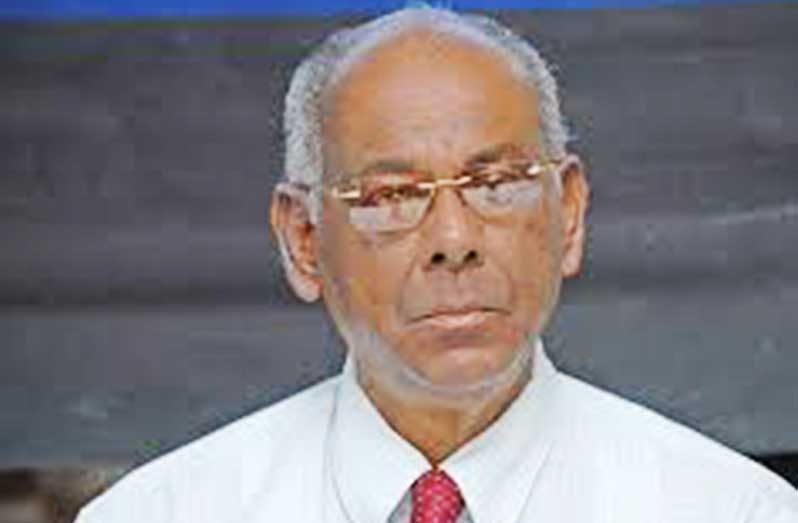-cites violation of Constitution, says today’s electoral system is very transparent
RALPH Ramkarran, a prominent political figure and attorney-at-law has expressed strong reservations about the opposition’s recent call for the introduction of biometric voting technology in Guyana’s elections.
Over the weekend, Ramkarran criticised the People’s National Congress/ Reform’s (PNC/R) demands, suggesting that the push for electronic fingerprint identification is not driven by genuine electoral concerns but by an ongoing political agenda.
The call for biometric identification, made by three members of the Elections Commission representing the Opposition, comes on the heels of longstanding allegations of electoral fraud.
Amidst accusations by the opposition that People’s Progressive Party (PPP) administration was involved in elections rigging, Ramkarran warned that even if biometric technology is implemented, new allegations would likely emerge.
“This is a long-standing demand by the opposition that picked up speed after the 2020 elections when the opposition, in a deflective manoeuvre, incredulously accused the PPP of rigging.
“As an aside, we should understand that if and when fingerprint technology is implemented, reasons will then be found to continue to allege that the PPP is rigging the elections.”
He added: “Demands will then emerge for retina identification technology. These demands for additional measures, including applicable AI technology, will continue indefinitely into the future, as long as the PPP wins elections.”
A HISTORY OF RIGGING AND REFORM
Ramkarran further drew attention to Guyana’s troubled history with electoral fraud, noting that the worst instances of rigging occurred during the 1968 to 1985 period, when the People’s National Congress (PNC) government was in power.
According to Ramkarran, the methods used at the time were “open” and “unusual,” a stark contrast to the more transparent election systems that have been in place since the 1990s.
“Guyana has gone a far way since the 1985 elections, the worst rigged in Guyana’s history. Free and fair elections are now guaranteed by access of all political parties to the political process, an accurate voters’ list, freedom to vote in conditions of security, the secrecy of the ballot, an adequate system of identification of voters, a transparent counting method at the place of poll and secure transmission of the results.”
He highlighted that over the years, significant improvements have been made to the electoral process.
Notably, political parties have been allowed to appoint scrutineers to monitor the registration process, helping to prevent the inclusion of fake names on the voter list.
Despite these reforms, however, Ramkarran pointed out that the opposition has continued to make allegations of rigging, including the controversial claim of a “bloated” voter list.
He reminded the public that non-residents, including Guyanese citizens living abroad, are legally entitled to be on the list.
LEGAL AND CONSTITUTIONAL CHALLENGES
Ramkarran also addressed the constitutional implications of the opposition’s call for biometrics. In 2001, the courts ruled in the case of Esther Perreira that any additional qualifications for voting, beyond those stipulated in the Constitution, would be unconstitutional. This included the requirement for voter identification cards, which was struck down as a violation of Articles 59 and 159 of the Constitution.
Ramkarran contended that the introduction of biometric voter identification would similarly violate the Constitution.
“Like the voter ID law, the imposition by law of a biometrics requirement to vote similarly violates article 59 and 159 of the Constitution. Since it would be a constitutional violation, the only possibility of clearing the way for the use of biometrics is an appropriate constitutional amendment. An ordinary law, such as the voter ID law, will be quickly overturned as violative of the Constitution.”
He cautioned that it would not prevent future legal challenges.
THE POLITICAL LANDSCAPE
Ramkarran’s statement also highlighted the deep political divides in Guyana, noting that the opposition’s view seems to be that the PPP is not supposed to win elections.
He pointed to the persistent notion that only the A Partnership for National Unity (APNU) has the “right” to hold office.
Despite his concerns, Ramkarran emphasised that there should be no objection to continually monitoring and improving the electoral process, as long as such efforts are based on genuine issues rather than unfounded suspicions.



.jpg)











